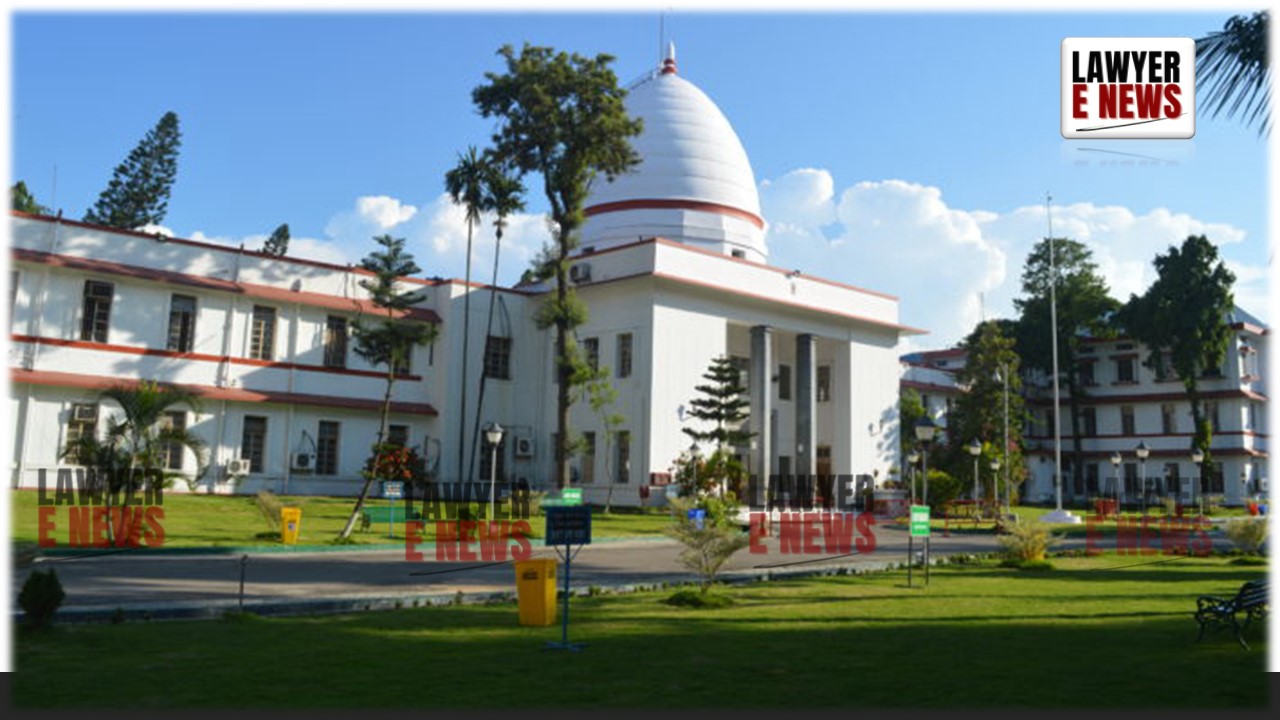-
by Admin
15 February 2026 2:36 AM



High Court stresses need for credible evidence to support charges under Prohibition of Child Marriage Act and POCSO Act.
In a significant ruling, the Gauhati High Court has quashed the charge-sheet and criminal proceedings in a child marriage case under the Prohibition of Child Marriage Act, 2006, and the POCSO Act, 2012. The judgment, delivered by Justice Mridul Kumar Kalita, emphasizes the need for credible evidence of the victim’s age to sustain such charges. The court’s decision came in response to a criminal petition filed by Nurul Haque and Ahsanul Hoque, challenging the charges against them.
Facts of the Case:
The case originated from an FIR lodged by Debasis Kar on February 6, 2023, alleging that Nurul Haque had forcibly married his 17-year-old daughter to Adnan Ahmed. The FIR was based on hearsay information without verification of the victim’s age. The police registered a case under Sections 9, 10, and 11 of the Prohibition of Child Marriage Act and Sections 4 and 17 of the POCSO Act. Subsequently, Charge-sheet No. 73/2023 was filed against five accused, including Haque and Hoque.
Court Observations and Views:
Credibility of Evidence:
Justice Kalita stressed the importance of accurate age verification in such cases. The petitioners provided documentation, including a birth certificate and educational certificates, showing the victim’s date of birth as December 31, 2004. “On the date of marriage, the victim was more than 18 years old, which makes the allegations of child marriage baseless,” the court observed.
Assessment of Age:
The court emphasized that the essential ingredient of the alleged offense—the minority of the victim—was missing. The documentation indicated the victim was above the legal age of marriage at the time of the ceremony on January 10, 2023, which was later registered on February 8, 2023. This rendered the charges under the Prohibition of Child Marriage Act and POCSO Act unfounded.
Legal Reasoning:
The judgment relied on principles established in notable Supreme Court cases, including State of Haryana v. Bhajan Lal. The court cited the precedent that criminal proceedings could be quashed if the allegations do not prima facie constitute any offense or are based on improbable allegations. “Continuing proceedings without credible evidence would be an abuse of the court process,” Justice Kalita remarked.
Quotes from the Judgment:
Justice Kalita highlighted, “The continuation of the criminal proceedings would only be an exercise in futility and an abuse of the process of court, given that the victim was a major at the time of her marriage.”
Conclusion:
The Gauhati High Court’s judgment reinforces the judiciary’s commitment to preventing misuse of laws intended to protect minors. By quashing the charges in this case, the court underscores the necessity of substantiating allegations with credible evidence, particularly regarding the victim’s age. This decision is expected to influence future cases, ensuring that legal actions are grounded in verifiable facts.
Date of Decision: July 15, 2024
Nurul Haque & Another vs. The State of Assam & Another
